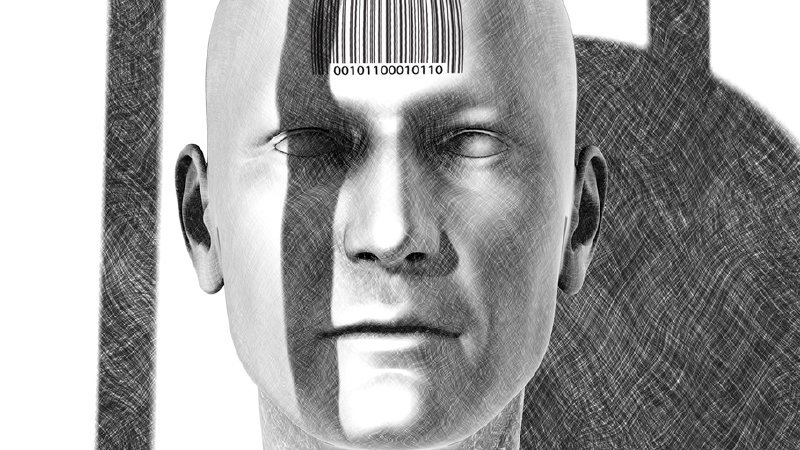
-
HOME
-
WHAT IS STANDOur Mission Our Values Our Help Contact
-
WHAT WE FIGHT FORReligious Freedom Religious Literacy Equality & Human Rights Inclusion & Respect Free Speech Responsible Journalism Corporate Accountability
-
RESOURCESExpert Studies Landmark Decisions White Papers FAQs David Miscavige Religious Freedom Resource Center Freedom of Religion & Human Rights Topic Index Priest-Penitent Privilege Islamophobia
-
HATE MONITORBiased Media Propagandists Hatemongers False Experts Hate Monitor Blog
-
NEWSROOMNews Media Watch Videos Blog
-
TAKE ACTIONCombat Hate & Discrimination Champion Freedom of Religion Demand Accountability
American Media: Stop Sensationalizing Religion
The U.S. media has sunk to new lows regarding its biased news presentation and coverage. It seems that everything is sensationalized today, including religion. Studies show that most Americans do not want sensationalized coverage of their religion and do not feel that the reporting journalists are adequately informed about their faith, a sentiment also shared by respected journalists. Increasingly, this missing media accountability is fostering an irresponsibility in readers that promotes hatred and violence against minority religions in particular.

A major reason for media sensationalism is that the news is now largely internet/cable TV driven, is extremely competitive and is especially dependent on revenue generated by advertising sponsors and click-throughs of sponsor pages. What will grab your attention in the shortest amount of time before you move on to the next item or change the channel? Apparently, it’s controversy, scandal and personality-driven sensationalism. The accuracy of the story is secondary.
In “Clickbait: The changing face of online journalism” by Ben Frampton of BBC News, the author explains how headlines have evolved in the digital age: “Without a doubt, there is a dumbing down in terms of content going on websites which does not bode well.”
News companies eager to justify their tactics will tell you that the public wants this kind of coverage. But do they really?
It seems that the trend that began with reality TV and daytime television has advanced into the realm of mainstream reporting, blurring the line between what is truth and what is… tabloid.
Which brings us to the subject of religion and the media. Even the sanctity of an individual’s personal faith, a freedom granted and guaranteed by the U.S. Constitution, is not safe from attack by journalists or media companies as they fish for clickbait.
Unfortunately, when a reporter takes on the subject of (someone else’s) religion, he or she does not usually understand what he or she is reporting on, or is relying on biased/slanted data and ignoring the sensibilities of their intended audience. This often happens in the case of minority religions such as Mormons, Jehovah’s Witnesses and Scientologists.
Further, this ignorance becomes a barrier to truth, when a malicious source wants to publish lies broadly and do damage to a religious group. Such was the case when HBO refused no less than 14 requests by the Church of Scientology for opportunities to correct false data in a so-called “documentary” that aired on the religion.
Media illiteracy regarding religion is not new. In 1997, Stuart A. Wright wrote in “Media Coverage of Unconventional Religion: Any ‘Good News’ for Minority Faiths?”:
“Religious illiteracy among reporters is an acute problem recognized within the professional ranks of journalism.”

Further, Wright notes that:
“ABC’s senior anchor and editor of World News Tonight, Peter Jennings… made the following observation: ‘I would venture that in the overwhelming majority of newsrooms in America there is an appalling ignorance of religion and faith…’”
More recently, The Atlantic reported that: “68 percent of Muslim women… said media coverage of Muslims is unfair.”
The obvious outcome of sensationalism and media bias against religion is mistrust and hate crimes. Indeed, hate crimes against minority religions in the U.S. are increasing. The Washington Post reported in 2017 that: “Hate crimes motivated by hatred of a religion increased last year, with a rise in the number of crimes targeting Jews and Muslims.”
Clearly there is a serious disconnect between the media and the viewing public on the subject of religion.
Members of other religions have been similarly affected by the increase in hate crimes: Christians, Jehovah’s Witnesses and Scientologists to name a few. How much of this can be directly attributed to inaccurate, sensationalized reporting? There is ample evidence pointing to this connection. For example, HuffPost reported that desensitization works slowly but effectively to make violence against minority groups acceptable. Pacific Standard reported that: “A study from Poland finds exposure to angry, hostile content targeting specific groups indirectly increases people’s prejudices.” CNN reports that there are “already hints that the United States is becoming more intolerant.”
As to the irresponsibility of the media sensationalizing and inflaming religious hatred: Jonathan A. Greenblatt, chief executive of the Anti-Defamation League, said that hate crimes “not only hurt one victim, but they also intimidate and isolate a victim’s whole community and weaken the bond of our society.”
News companies eager to justify their tactics will tell you that the public wants this kind of coverage. But do they really? In a study done in 2012 at USC it was found that: “Two-thirds of the American public said religion coverage is too sensationalized in the news media—a view held by less than 30 percent of reporters…” Further, the study found that “less than one-fifth of journalists, or 18.9 percent, said they are ‘very knowledgeable’ about religion… mainly… their own religious traditions, not the wider array of faiths and practices…”
This same study noted that “most reporters believe their audiences want personality-driven religion news… But… 69.7 percent of Americans said they’re interested in more complex coverage that looks at religious experiences and spiritual practice.”
Clearly there is a serious disconnect between the media and the public on the subject of religion. We want factual and honest coverage. Anything else is irresponsible and abhorrent.









